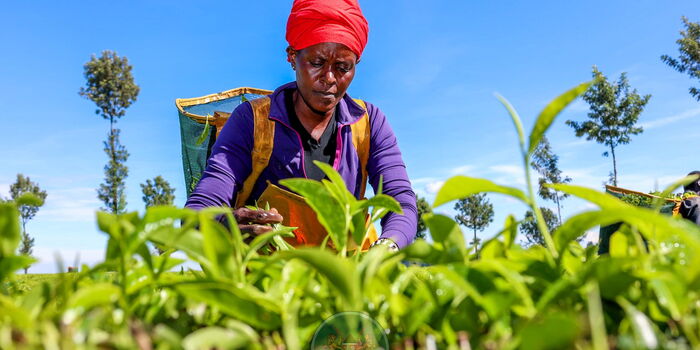The Kenya Tea Development Agency (KTDA) has strongly denied accusations that over Ksh1.03 billion collected from tea farmers in Kericho and Bomet was secretly diverted to projects in the East of the Rift Valley.
In a statement issued on Tuesday, October 14, KTDA dismissed the claims—circulating mainly from some local leaders in the two counties—as deceptive, unfounded, and meant to mislead the public.
The leaders had alleged that the money farmers contributed for two small hydropower projects was instead redirected to developments outside the West Rift, allegedly without consulting the farmers or getting their approval.
KTDA clarified that the money is already being used exactly where it was intended—on two hydropower plants: the Chemosit Small Hydro Plant and the Kipsonoi Small Hydro Plant.
These projects are being undertaken by Settet Power Generation Company, which is jointly owned by tea factories in Kericho and Bomet, together with KTDA Power Company Limited.
According to the agency, Settet Power Generation Company Limited was formed in October 2010 and is equally owned by eight shareholders—seven tea factory companies from Kericho and Bomet (Kapkatet, Litein, Tegat, Momul, Kapkoros, Mogogosiek, and Kapset), plus KTDA Power Company Limited. Each of the eight shareholders owns 12.5 percent of the company.
KTDA explained that Settet was created specifically to build small hydropower plants that would supply affordable and reliable electricity to tea factories in the region. This was meant to reduce production costs and boost earnings for farmers.
The agency further outlined how the farmers’ contributions have been spent. The funds have gone toward paying civil works contractors, hiring project consultants, buying electromechanical equipment, and acquiring land for the projects.
So far, a total of Ksh1.208 billion has already been invested in these two plants. Since this amount exceeded the initial contributions, the remaining Ksh174 million was raised through internal borrowing.
Both projects are already underway. The Chemosit Small Hydro Plant has a capacity of 2.5 megawatts, while the Kipsonoi Small Hydro Plant will generate 2.6 megawatts.
KTDA noted that the projects are being financed on a 65:35 debt-to-equity model, meaning the shareholders were required to contribute Ksh1.1 billion in equity.
This explanation comes just days after the Ministry of Agriculture dismissed rumours that tea farmers in the West Rift are receiving lower bonuses due to discrimination compared to those in the East Rift.
Agriculture Principal Secretary Kipronoh Ronoh clarified on Thursday, October 9, that the differences in tea bonus payments are caused by variations in production costs and tea quality between the two regions.
KTDA has also confirmed that farmers will receive their final bonus payments by Wednesday, October 15, 2025, following the end of the 2024–2025 financial year. The money will be deposited directly into farmers’ bank accounts, including proceeds from September 2025 green leaf deliveries.
Join Government Official WhatsApp Channel To Stay Updated On time
https://whatsapp.com/channel/0029VaWT5gSGufImU8R0DO30


